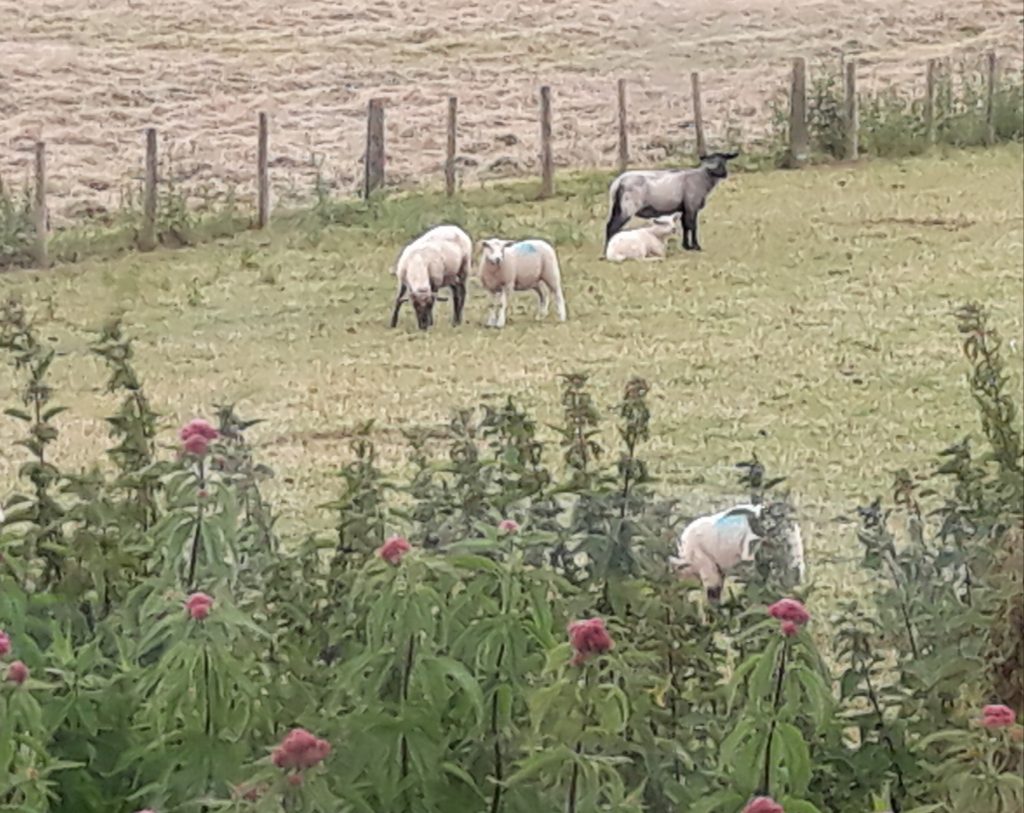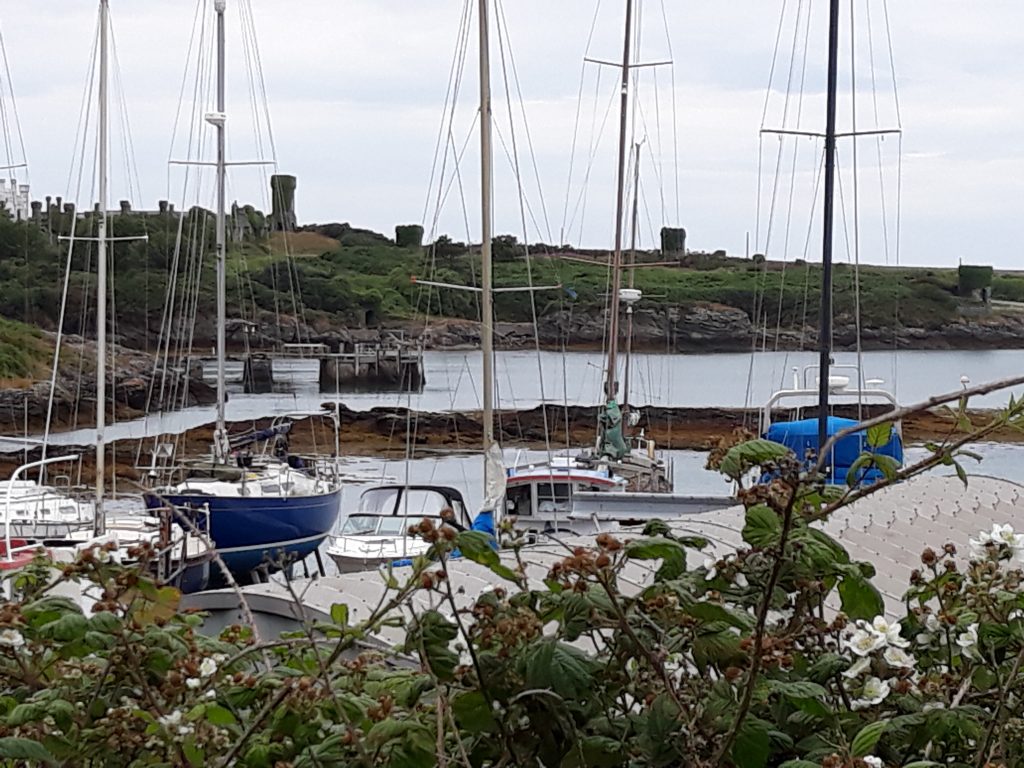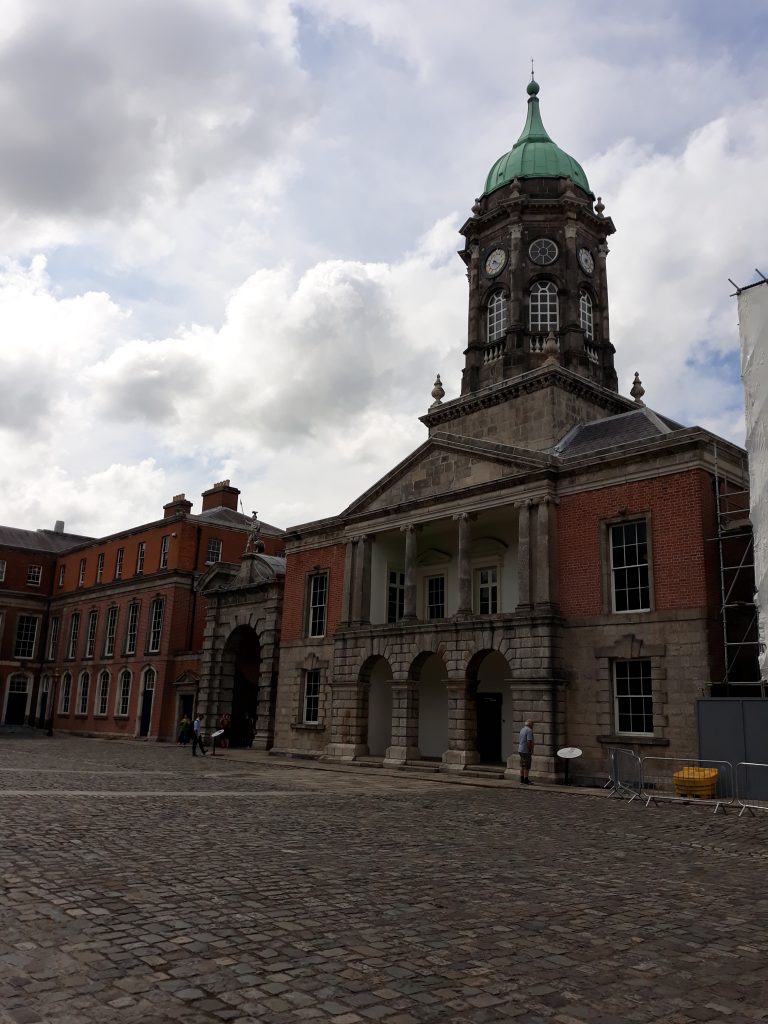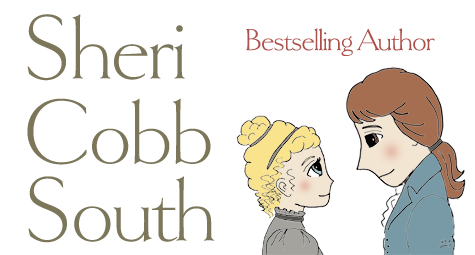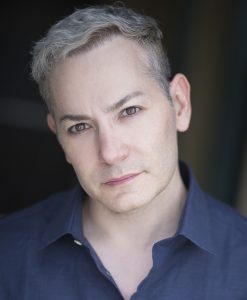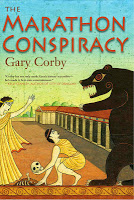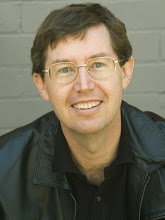From the detailed Author’s Notes at the end of each of your books, I get the impression that you were knowledgeable about Greek history long before you started writing your novels. Am I right? Tell me a little about your background.
You’re right. I was reading history even as a teenager — mostly ancient Greek and Roman. But also mediaeval and WW2. That was just for fun. By training I’m a mathematician, weird as that may sound. These days I’m a full time writer of murder mysteries.
Classical Greece was an easy choice, when I decided to write a historical mystery. To start with, I already knew a lot about the period. Or I thought I did. It’s one thing to know about the wars, the great art, and the geopolitics. It’s another thing to know how the drains work! Also how houses were built, what people ate, how they wore their hair, etc. Now I know all that stuff, too.
I first traveled about Greece, Turkey and the Aegean when I was in my early twenties. Little did I know then that one day I’d be writing about the place. But that local knowledge helps with descriptions.
Mysteries are so series-oriented that it’s important to create characters that we, as writers, won’t get tired of writing about, and that readers won’t get tired of reading about. I can assure you that you’ve accomplished the latter! Can you tell me a little about how you created Nicolaos?
Poor Nico! He’s the dumbest guy in the room.
At the time Nico’s alive and detecting, there are about a dozen world-class geniuses walking around Athens. There’s Pericles the famous statesman; Socrates the world’s greatest philosopher, but at this point he’s only twelve years old; Diotima the priestess-philosopher; Aspasia the brilliant speech writer; Hippocrates the Father of Medicine; the playwrights Aeschylus, Sophocles and Euripides; Herodotus the Father of History…the list goes on.
Even Sherlock Holmes would struggle against this lot. It meant that my detective couldn’t be the smartest guy in the room. Since he couldn’t be the smartest, he had to be the dumbest.
So Nico’s little brother is a genius. His girlfriend is a genius. His boss is a genius. But Nico’s the one expected to solve all the puzzles.
What about Diotima, Socrates, and the other real-life characters? Where does the historical figure end and the fictional portrayal begin?
It varies with the character. Socrates is easily the best documented person from that entire century. There are good descriptions of his demeanour, his family, lists of his friends, where he lived, very long reports of his dialogues. There’s even a first-hand account of his actions during a for-real battle.
Diotima on the other hand only gets mentioned in one place. But if you can only get mentioned once in history, Plato’s Symposium is a good choice. Her character I had to create. Her intelligence was obviously top notch for her to have taught philosophy to Socrates, and for him to have been grateful for it. She heads the most powerful student-teacher chain in history. Diotima taught Socrates. Socrates taught Plato. Plato taught Aristotle. Aristotle taught Alexander the Great. Alexander conquered the world.
You can pull all sorts of enlightening tidbits from recorded history. I have Pericles as being very stingy with his money, for example. That’s because there’s a surviving court case in which it emerged that he underpaid his own son.
Many of the people who read my blog are writers themselves, who know that anything can happen during a speaking engagement—especially when you’re talking to kids! Would you please share with them your experiences when speaking at your daughter’s school (which you describe at the end of The Marathon Conspiracy), and how that experience gave you unexpected insight into Diotima’s character? Besides being a charming story in itself, it demonstrates how anything and everything becomes grist for the writer’s mill!
It was the custom at the time that, when a girl came of age, she dedicated her toys to the goddess Artemis. It was a coming of age rite.
I once gave a talk at my daughters’ school about ancient Greece, where I described the lives of girls in classical times. I talked about how they wore their hair, what their clothes looked like, how school worked, etc. Then I mentioned the dedication of the toys.
The girls were shocked. Absolutely stunned.
It was instantly clear to me that my heroine Diotima would have done something about this rule. To find out what she did, you’ll have to read the book!
From your Author’s Notes (which, by the way, I enjoy as much as I do the novels!), I suspect you’ve made at least one trip to Greece, Ephesus, etc. to research your books. My husband and I are planning a Mediterranean trip in the next few years. What locations do you suggest I and other literary-minded travelers might want to check out that might add to our enjoyment of the novels?
For The Pericles Commission, you definitely want to visit Athens. I know of people who’ve taken The Pericles Commission with them, to find the places. The first murder scene is on an important rock outcrop beside the Acropolis, a place called the Areopagus. You can easily find the spot where my first victim dies, and where Nico was standing when it happened. (I plotted this out myself.) Then go up to the Acropolis. To the north you’ll see the agora, which Nico accidentally destroys in the book. Also the Panathenaic Way which is the major connecting road. To the south is the road to Piraeus, on which Nico has a knife fight in a later book. If you look straight down from the Acropolis you’ll see the Theater of Dionysos, which is the setting for the next book, Death ex Machina.
For The Ionia Sanction, visit the magnificent ruins at Ephesus, which these days is on the west coast of Turkey. This is the same Ephesus that appears in the Bible (think Paul’s epistles to the Ephesians). But in classical times it was a major port city. The theater, the marketplace, the road to the wharves, the ancient brothel, Marble Road where Nico and Diotima have a flaming row…all those places are there to be seen.
Sacred Games is set at the ancient Olympics. Go straight to Olympia!
The Marathon Conspiracy is mostly set at a temple sanctuary at a place called Brauron in the ancient language, and Vravona in modern Greek. The sanctuary and temple is a remarkably small area, but it was the world’s first official school for girls. If you travel up the coast road from there you’ll come to the plain of Marathon, where they fought what was probably the most important battle in history.
What’s next for Nico and Diotima? When can we look forward to reading about their next adventure?
The book scheduled for next year is already written. It’s called Death ex Machina and will be a rather theatrical mystery.
Is there anything else you’d like to share with readers or potential readers? Here’s your chance!
People haven’t changed over thousands of years. The same desires and fears that drive us today, greed, lust, ambition, love…those are what drove people two thousand five hundred years ago. All that’s changed is the setting!
Thanks, Gary!
Note to my readers: If you haven’t read Gary’s books yet, I urge you to do so! And I strongly suggest that you start at the very beginning (a very good place to start) with The Pericles Commission, so you can follow the relationship between Nico and Diotima from the very beginning. You’ll love Nico, you’ll laugh out loud, and you might just learn something about Greek history.

